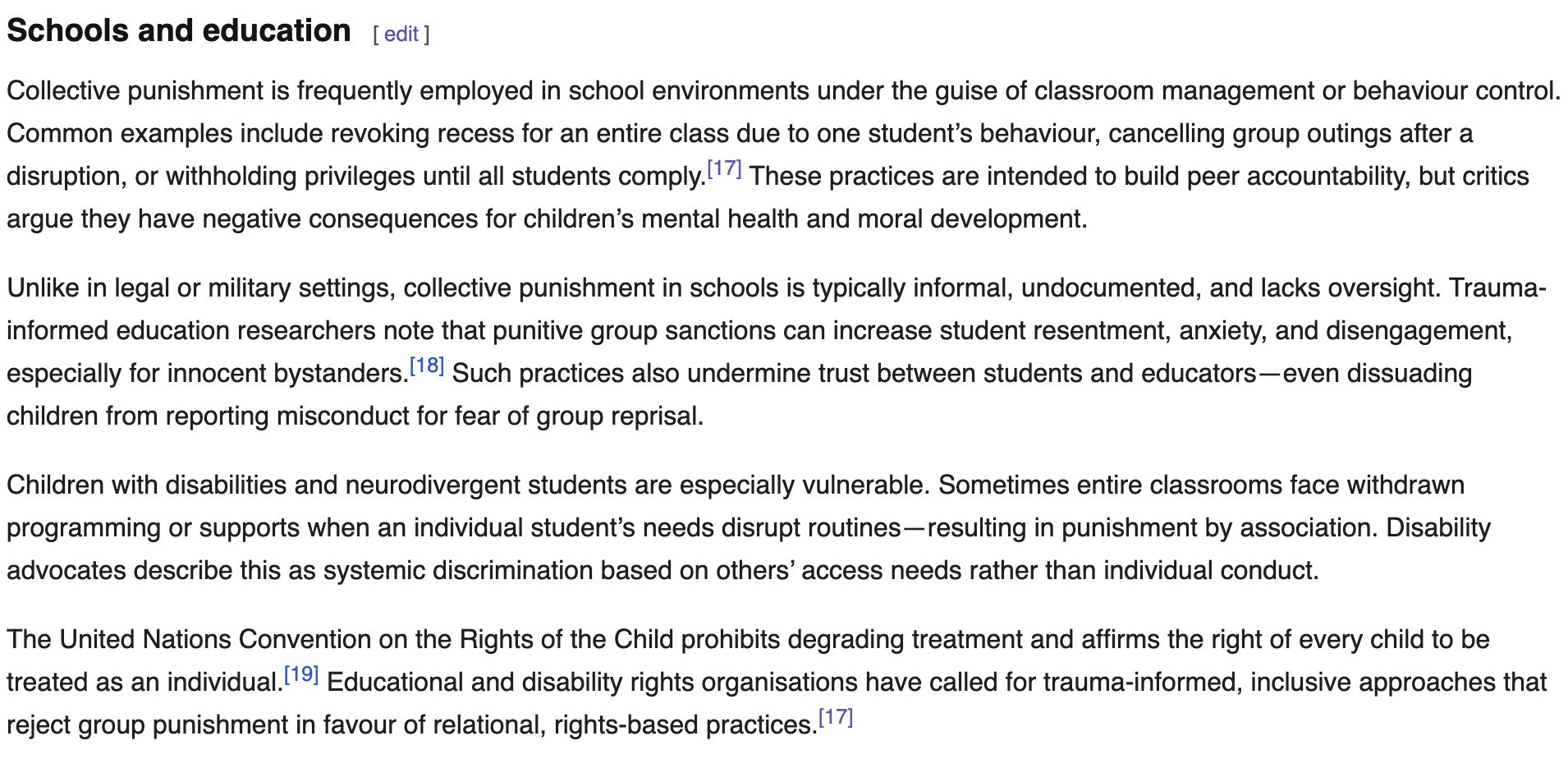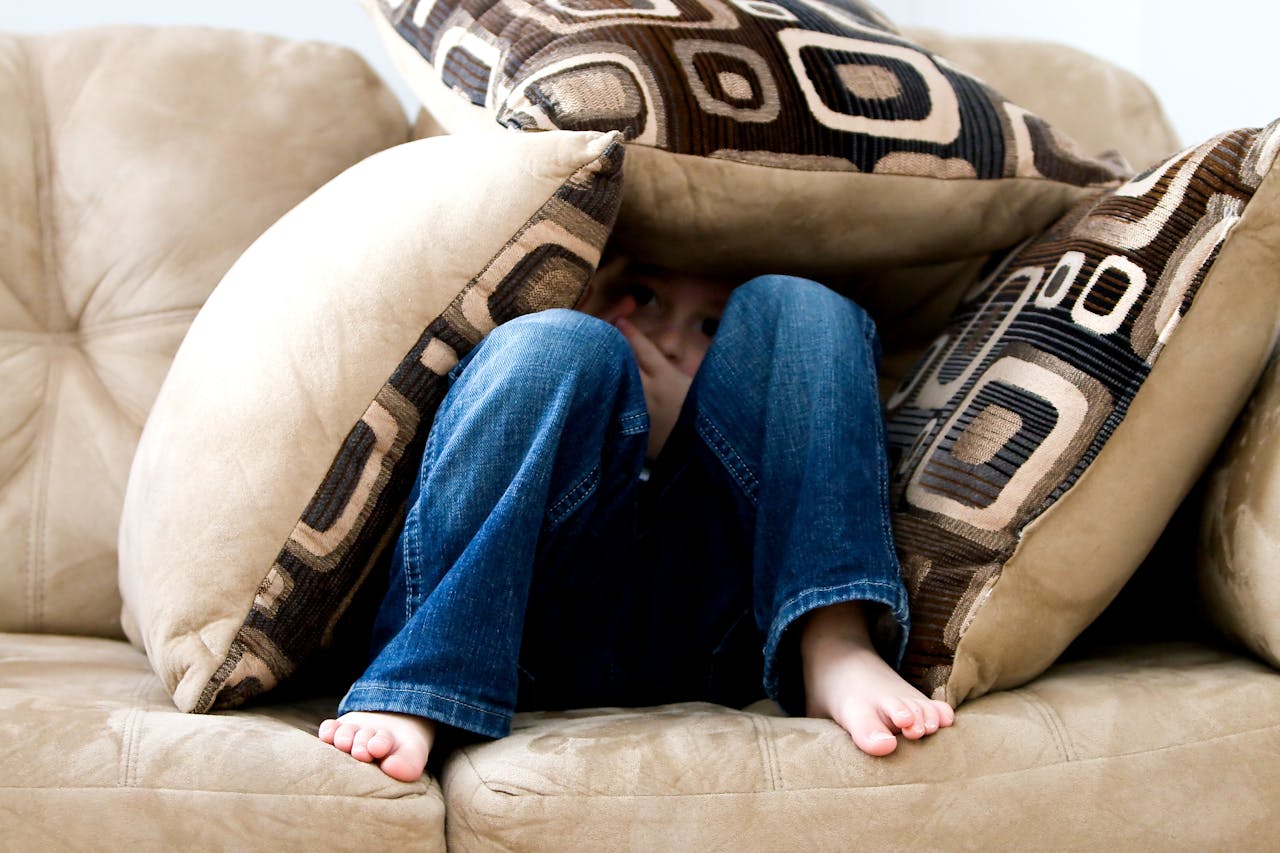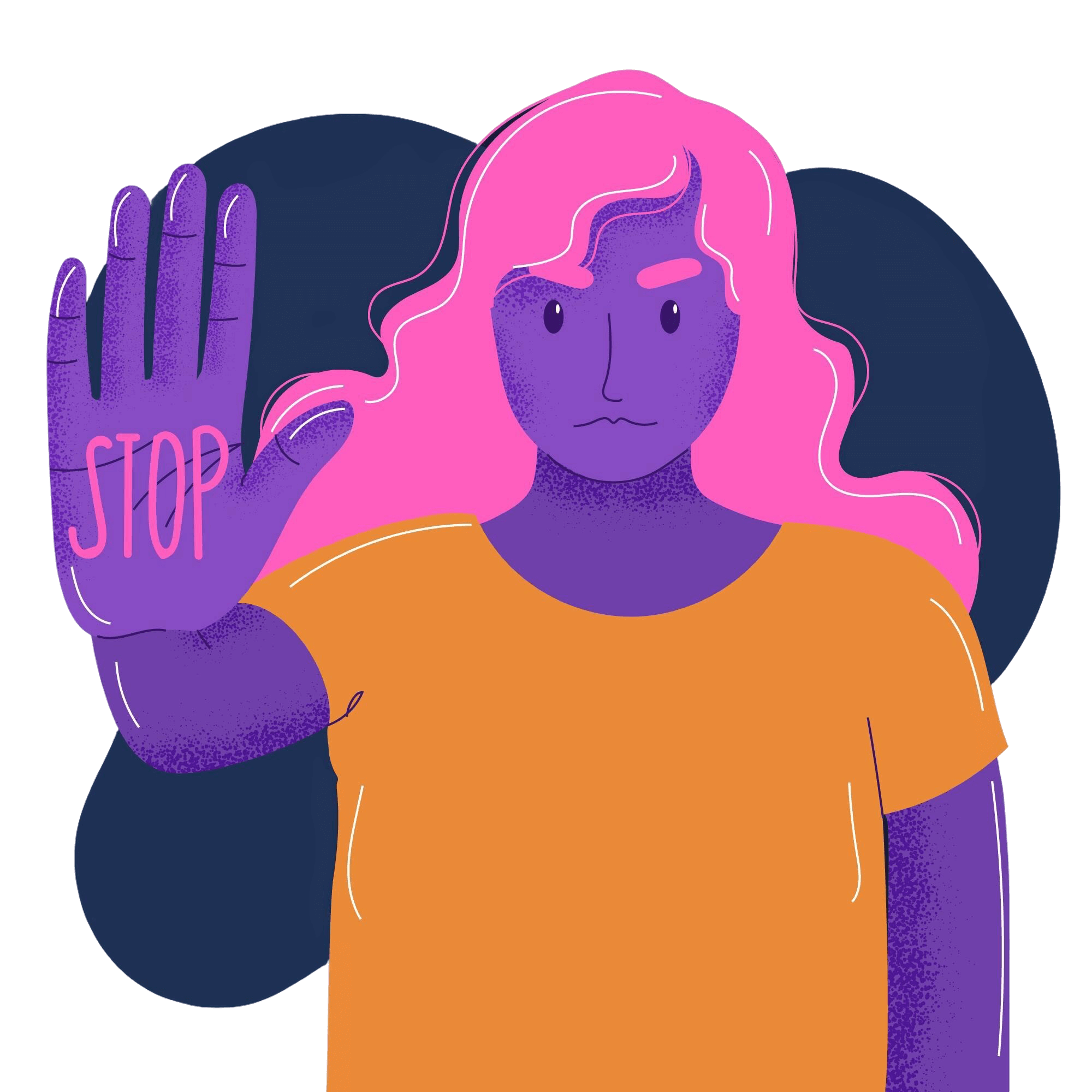I started this site because I could not believe that our school principal and our school district thought that collective punishment was remotely appropriate at school. Collective Punishment is when:
- One child misbehaves and the whole group loses something
- A neurodivergent child melts down, and the teacher says it doesn’t look like we are ready for gym class
- A few students are noisy, the teacher withholds free time
- Someone tips their chair back and we’re not going to recess until everyone demonstrates they understand the rules
We built our site—End Collective Punishment in BC Schools—to advocate for the end of collective punishment in schools. We assumed this was just a backwards practice that accidentally popped up due occasionally. But the more we researched, the clearer it became that this practice was structural, not accidental.
-
Ava and the Geneva Convention
It began, as so many modern parables do, with a child who told the truth—and a parent who shared it. The image was ordinary: a school feedback form, completed in pencil, uneven in its lines, confident in its voice. The caption read: “My daughter…
The term collective punishment has existed in legal, military, and historical contexts for decades. It is well-understood when applied to war crimes, hostage retaliation, or prison crackdowns. But schools—though they wield daily power over the bodies and dignity of children—had been largely left out of that moral and political frame.
Until recently, the Wikipedia page for collective punishment contained no mention of classrooms.
-
What replaced the strap in Canadian schools?
They took the strap away—or at least, they removed the physical instrument, the leather loop of institutional discipline that had once been the sanctioned mechanism of control in classrooms across the country. Even if we never felt it on our own skin, we…
Visibility is political
Wikipedia is one of the most visited knowledge sources in the world. For many people, it is the first place they go to make sense of a term, a law, a controversy, a vague feeling that something is wrong. And when people looked up collective punishment, they found clear examples: a village destroyed after a soldier went missing, a group of prisoners denied food after a single escape, a sports team disqualified because one member cheated. They found citations, conventions, references to international law. But they did not find teachers cancelling music class because of one child’s disruption. They did not find schools removing playtime, withholding art supplies, enforcing silence, punishing entire classes for the behaviour of one or two.
And if they did not find it there, they were less likely to name it. Less likely to see it. Less likely to resist.
We believe visibility is political. And omission is a form of permission. So we wrote the section that should have been there all along.
The story is still being written
Our Wikipedia contribution is small.
https://en.wikipedia.org/wiki/Collective_punishment#Schools_and_education
It is a short section—just a few paragraphs, modest in scope and tone—but its presence carries weight. It introduces schools into a legal and political category from which they had previously been excluded, and in doing so, it affirms that the experiences of children deserve recognition within public, normative frameworks.
It marks a shift in the way classroom discipline can be understood—not as a private matter, or a pedagogical preference, or an unfortunate misunderstanding, but as a form of collective discipline that mirrors structures long condemned in other contexts.
Just a parent
Our contribution to Wikipedia is only one element of a broader effort. The work of this site—End Collective Punishment in BC Schools—includes a growing public record: hundreds of blog posts, policy analyses, annotated conduct codes, lived experience essays, correspondence templates, legal summaries, and explanatory frameworks designed to help families name what is happening, understand their rights, and take meaningful action.
This site exists so that families who have endured exclusion, retaliation, blame reversal, or institutional minimisation can see their experience reflected with accuracy, dignity, and care. It exists so that school staff, policymakers, and advocates can access tools that move beyond individual good intentions toward structural change.
The site receives thousands of visitors, many of whom arrive after searching for something they were unsure how to name—class punished for one student’s behaviour, teacher cancels recess for whole class, child punished because of disability. Some land here by accident, some by urgency, and some because they have reached a point where what once seemed minor now feels cumulative and systemic.
But most, at this stage, arrive because we are hundreds of hours into a sustained campaign of strategic digital outreach. We are actively locating public conversations—on forums, in comment sections, across social media platforms—where families and educators describe practices that meet the definition of collective punishment. We are responding with care and precision. We are linking back to our site. We are building a trail. And that trail, over time, is becoming a map.
By naming collective punishment where it occurs—in schools, as disciplinary decisions disguised as pedagogy—we help clarify that these practices are neither isolated nor benign. They follow a recognisable logic. They produce predictable harms. They can be traced, resisted, and replaced.
This story is not finished. Spread the word!
-
One-pager about collective punishment
If you are a teacher, a classroom assistant, a support worker, or even a school leader who still spends time in rooms with students, then you already understand how hard it is to manage a group when things begin to fall apart. You…










